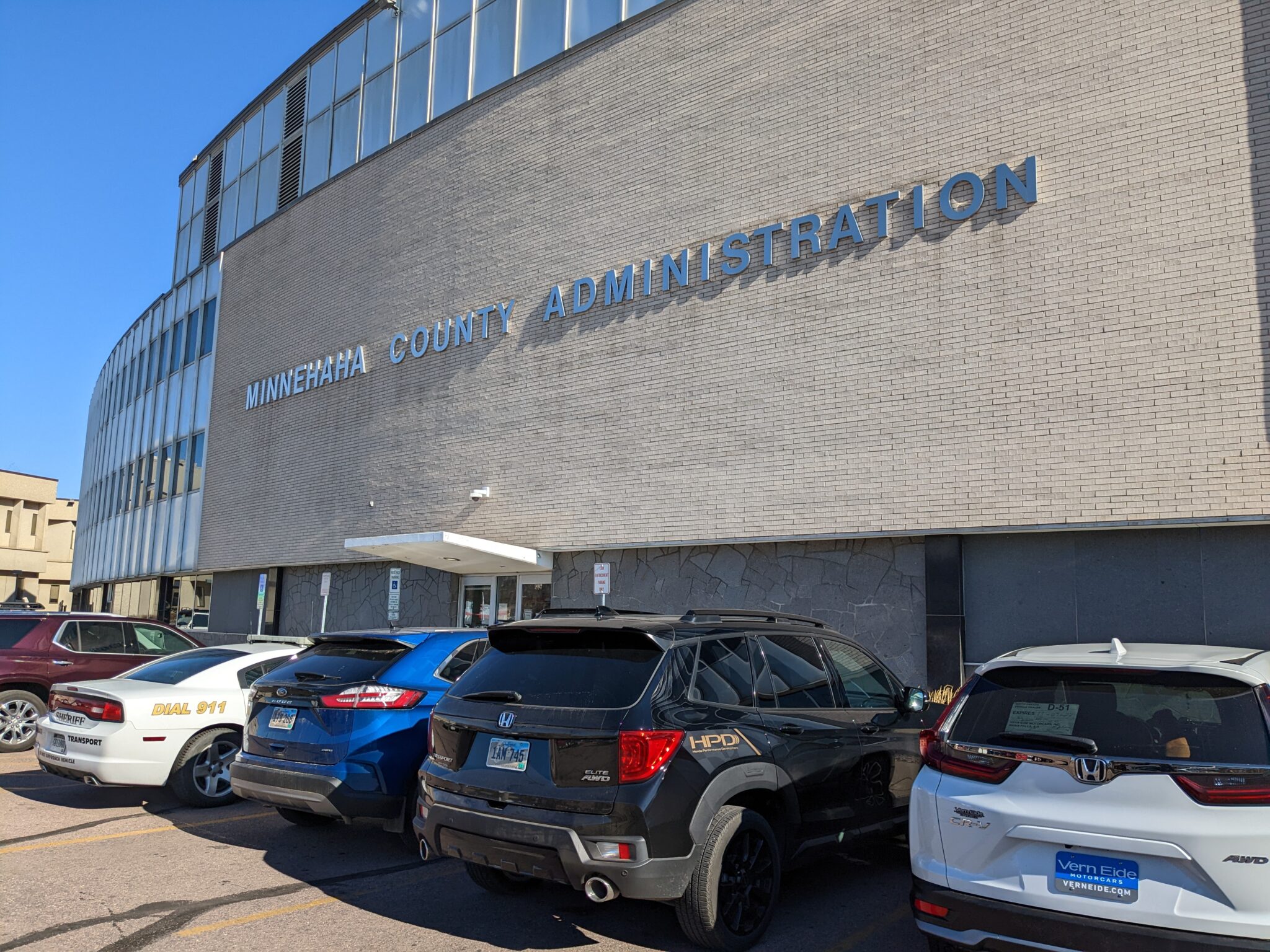
SIOUX FALLS, John Hult/South Dakota Searchlight — Minnehaha County commissioners signed off on a settlement agreement Tuesday to dismiss a lawsuit accusing them of violating the First Amendment rights of people collecting signatures for ballot questions.
Dakotans for Health sued the county this spring after the commission passed a policy on May 2 that restricted petitioning to a small area near the county administration building and required petitioners to check in with the county auditor before collecting signatures. The group also sued Lawrence County, whose commissioners had considered but did not pass a more restrictive set of petitioner regulations. The group recently asked that the Lawrence County suit be dismissed.
The advocacy group is collecting signatures to put a repeal of the state’s sales tax on food and a constitutional amendment reinstating the right to an abortion on the general election ballot in 2024. Abortion became illegal in South Dakota shortly after the U.S. Supreme Court voted to overturn the constitutional right to abortion with its 2022 decision in Dobbs vs. Jackson.
U.S. District Judge Roberto Lange signed a temporary restraining order to stop Minnehaha County from enforcing its petitioning policy just one day after the Dakotans for Health lawsuit was filed. Lange agreed with Dakotans for Health’s assertion that the policy likely violates free speech rights and clearly encumbered its ability to gather signatures in time to get its measure on the ballot.
“The new policy generally makes it much less likely that those entering or exiting the Minnehaha County buildings will engage at all with petition circulators,” Lange wrote in the May 11 order.
The county has since worked to craft a constitutionally defensible alternative policy, Minnehaha County Commission Administrative Officer Tom Greco told commissioners on Tuesday.
“We certainly appreciate citizens who take an active role in government decisions at all levels, but we do want to ensure that the buildings are able to accommodate people every day without any unnecessary delay or inconvenience,” Greco said.
The settlement agreement Greco presented, signed on Nov. 15 by Dakotans for Health’s Rick Weiland, was grounded in that updated policy.
The only significant difference between the petition-gathering policy in place before this spring’s attempt to rein in activity is the creation of a “zone of non-interference” that spans 24 feet of sidewalk from the entryway to the administration. The area creates a clear path from the building’s handicap parking spaces to the entrance. Petitioners are free to stand to the south of the doors.
As with the previous policy, petitioners cannot engage with citizens inside the entryway or inside the building itself.
The policy is similar to one passed in Brown County this month, which requires petitioners to be 10 feet from any entrance. Commissioners in the county seat of Aberdeen were concerned about clashes between abortion amendment petitioners and a group called “Decline to Sign,” which has deployed people to popular signature-gathering spots to dissuade citizens from signing the abortion rights petition. Decline to Sign representatives also stand outside the Minnehaha County administration building.
Weiland told South Dakota Searchlight that the updated petitioning policy in Minnehaha County is preferable on First Amendment grounds. He also asserted that a wider area for petitioning should help temper the risk of heated confrontations between supporters and opponents of the ballot question.
“If we hadn’t challenged the Minnehaha County policy, it would have had us all out there in a box,” Weiland said.
Dakotans for Health will need 35,017 signatures from registered voters to put the abortion amendment on the ballot, and 17,508 signatures to put the initiated law on the ballot that would repeal the state sales tax on food.
Minnehaha County commissioners voted Tuesday to sign the settlement agreement with Dakotans for Health, which agreed to drop its claims with the formal adoption of the new petitioning policy. Commissioners will vote formally on the policy on Nov. 28.
The Dakotans for Health measures are among more than a dozen questions that could appear on statewide ballots in the Nov. 5, 2024, election.
